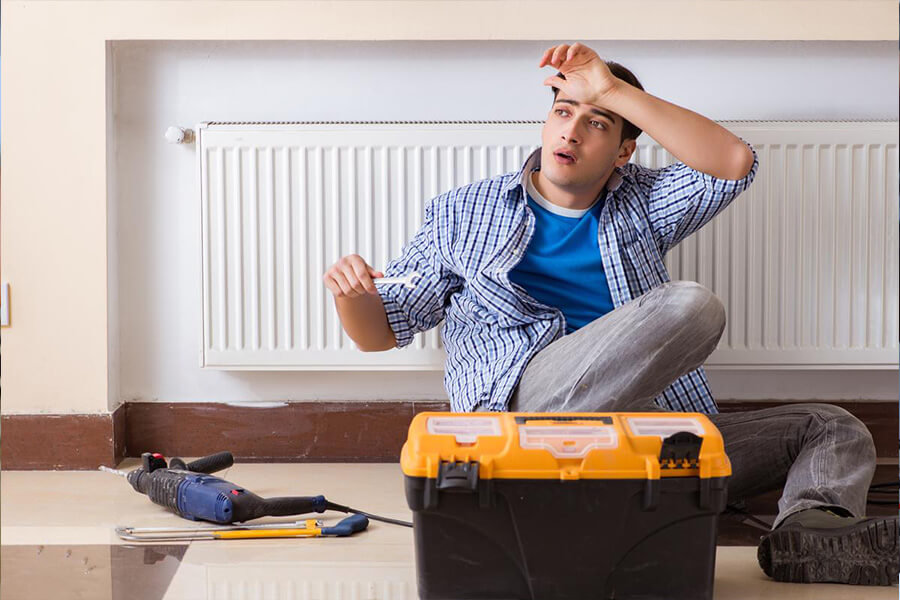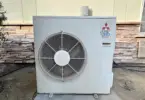Introduction
Introduction Comfortable indoor temperatures and high quality air are prerequisites for the use of any modern structure, therefore this is why HVAC (Heating, Ventilation, and Air Conditioning) systems are so important. These systems, however, can be put through a lot of stress from a variety of sources, which can lower their efficiency, increase their energy consumption, and even cause them to break down. The HVAC system’s lifespan can be increase by reducing the stress on HVAC, energy can be saved, and indoor comfort can be improved by minimizing the strain placed on it.
Here, you’ll learn actionable tips for keeping your HVAC system in good working order and dealing with stress in healthy ways.
Understanding the Strain on Your HVAC System
Continuously operating, HVAC systems provide comfortable indoor temperatures and high air quality. Dust buildup, wear and tear, incorrect use, and harsh environments all add up to a deteriorating system over time. The effects of stress might range from mild inefficiency to catastrophic breakdown.
Reducing Stress on HVAC System is crucial
There are many reasons why it’s essential to reduce the stress on your HVAC system:
- Longevity: Reduced wear and tear on your HVAC system means less money spent on repairs and maintenance over time.
- Efficiency: Savings on energy costs and less wear and tear on the environment are two of the many benefits of keeping your system in good working order.
- Comfort: Indoor comfort and air purity are guaranteed by a well-maintained HVAC system.
- Preventive Maintenance: Maintenance that is performed before problems arise is called preventive maintenance.
- Financial Savings: Long-term cost reductions can be realized since a well-maintained HVAC system uses less energy.
Suggestions for Easing the Pressure on Your HVAC System
 1. Perform Routine Maintenance and Inspection
1. Perform Routine Maintenance and Inspection
Regular maintenance and inspections are one of the best methods to reduce stress on your HVAC system. Preventative maintenance lets you find and fix issues before they become catastrophic. Here are some preventative measures to take into account:
- Maintaining Comfortable Temperatures by Cleaning or Replacing Air Filters: Airflow is restricted by dirty or clogged air filters, requiring the HVAC system to work more to maintain set temperatures. Filters that are maintained on a regular basis (cleaned or replaced) function at a much higher level.
- Cleaning Condenser and Evaporator Coils: When dust and debris build up on condenser and evaporator coils, heat transmission efficiency is diminished. The most efficient use of heat and energy is achieved when surfaces are kept clean on a regular basis.
- Ductwork Inspection: Air leaks cause uneven airflow and energy waste. Efficiency and overall system performance can be increased by sealing and insulating ducts.
- Checking Refrigerant Levels: Refrigerant levels should be checked regularly to ensure optimal performance of the air conditioner or heater. The efficiency of a system can be improved with routine expert maintenance.
2. Use of the Thermostat Effectively
The thermostat is a vital component in keeping HVAC issues at bay. When used correctly, the system can save energy and function more smoothly:
- Investing in a programmable thermostat: Investing in a programmable thermostat lets you customize the temperature settings for different times of the day. For the HVAC system to work less hard, you can increase the charging temperature when the building is empty.
- Avoid Drastic Temperature Changes: Keep the Thermostat from Being Constantly Adjusted Upwards or Downwards to Extreme Temperatures. Instead, you should shoot for slow temperature increases or decreases to reduce strain.
- Utilize Natural Heating and Cooling: Take advantage of free, natural resources like sunshine and air flow to heat and cool your home. This reduce the stress on your HVAC system, which is appreciated in warmer months.
3. Adequate Airflow
Indoor air quality is improved by adequate ventilation, and the HVAC system benefits from the reduced workload.
- Use Exhaust Fans: Humid air can be removed with the use of exhaust fans in high-moisture locations such as kitchens and bathrooms. Because of this, the HVAC system doesn’t have to work as hard to remove excess moisture from the structure.
- Plan your Window Openings: Cross-ventilation is facilitated by opening windows on opposing sides of the building during warm weather, which in turn reduces the need for air conditioning.
4. Improved Thermal Barrier
By keeping interior temperatures consistent, a well-insulated structure lessens the demand on the heating, ventilation, and air conditioning system.
- Insulating Attics and Roofs: Roof and attic insulation is important because it keeps warm air inside during the winter and keeps cool air out during the summer. Because of this, indoor temperatures are more stable, and less energy is needed to maintain them.
- Sealing Windows and Doors: Drafts from open windows and doors put extra strain on your heating and cooling system. A well-sealed system wastes less energy and experiences less stress.
5. Methods for Regulating Heat Gain and Loss
Stress on the HVAC system can be greatly reduced by taking measures to limit heat gain and loss through the building envelope.
- Window Treatments: To reduce the amount of heat and light entering a room through the windows during the hottest portions of the day, reflecting shades or drapes should be used. This lessens the requirement for excessive refrigeration.
- Shade Structures:Planting trees or erecting other forms of outside shading can help to limit the amount of heat that enters a home through the windows.
6. Scheduled Visits From Trained Experts
Regular expert inspections are just as crucial as DIY maintenance
- Annual HVAC Check-ups: Check your HVAC system once a year by hiring a professional technician. By spotting and fixing any problems that may arise, they can keep everything running smoothly.
- Ductwork Inspection: The ducts in your home should be inspected and cleaned by experts on a regular basis. When the HVAC system has to work harder because of leaks, obstructions, or debris, energy consumption rises.
Frequently Asked Questions
How Can We Reduce The Strain on an HVAC System Through Routine Maintenance?
Cleaning filters, checking for leaks, and greasing moving parts are all part of regular maintenance. As a result, less stress is placed on the system, decreasing the likelihood of breakdowns.
How We Reduce the Stress on HVAC systems if Air Filters are not Maintained Properly?
If the air filters are clean, the HVAC system doesn’t have to work as hard to move the air around. Filters that are clogged cause extra strain on the system. Hence, reduce the stress on HVAC system.
How Should We Adjust the Temperature to Reduce the Demand on the HVAC System?
Keeping the temperature at a moderate level can reduce stress on the system. Maintaining a temperature of about 78 degrees Fahrenheit (25 degrees Celsius) in the summer and about 68 degrees Fahrenheit (20 degrees Celsius) in the winter will help you feel less stressed.
What Role Does Ventilation Play In Reducing Stress on HVAC Systems?
Inadequate ventilation can lead to air stagnation inside a building and uneven distribution of conditioned air. As a result, the HVAC system won’t have to work as hard to keep the air quality within the building constant.
Conclusion
Comfortable indoor conditions and reduced energy use and costs are the results of a well-maintained HVAC system. By following these tips, you may reduce stress on your HVAC system, extend its life, and make your home or workplace more pleasant and healthy for everyone. Keep in mind that proper HVAC operation depends on regular maintenance, careful energy management, and expert advice.
Disclosure: We may get commissions for purchases made through links in this post.








